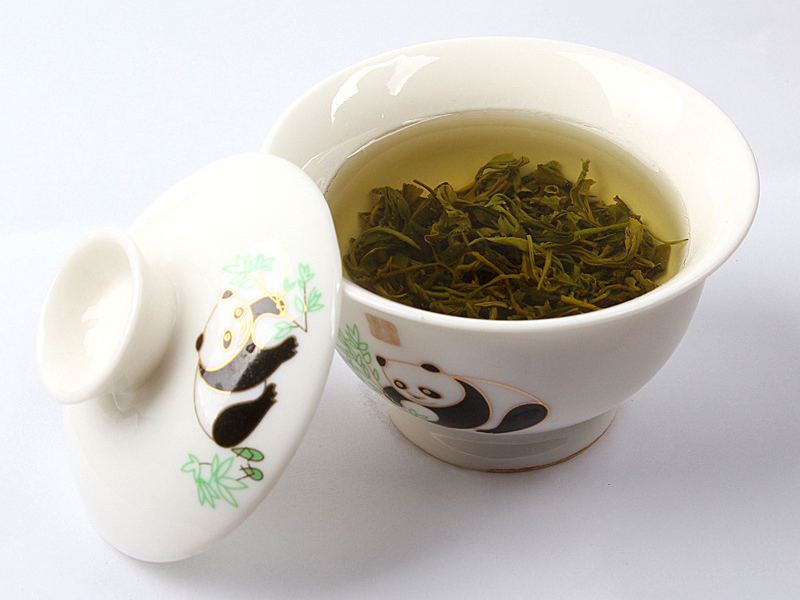Nutrition can help manage Alzheimer’s, from mild to severe stages
01/09/2019 / By Jessica Dolores

An aging population all over the world is raising the risk of Alzheimer’s disease among seniors. Today, the degenerative disease which impairs older people’s mental health makes up a significant 50 to 70 percent of dementia cases.
The World Alzheimer Report in 2015 states that around 46 million are afflicted with the disease and other forms of dementia. The number rises three to four times in developing countries like Brazil.
There seems to be no light at the end of the tunnel, so far. It is predicted that by the year 2030, 20 percent of people above 60 years old will have Alzheimer’s disease.
The downhill curve can start as early as age 45, when early symptoms of the disease like depression, irritability, confusion and forgetfulness occur. But as in most diseases, the situation can be reversed when caught early.
Fighting Alzheimer’s with proper nutrition
A 2017 study published in Nutrire aimed to set nutritional guidelines for the three stages of Alzheimer’s: mild, moderate and severe. The literature that the researchers gathered point to a direct link between nutrition and Alzheimer’s.
The findings suggest that nutrition plays a key role in helping Alzheimer’s patients cope in all three stages of their condition. Countries whose citizens ate lots of fish, fruits, and vegetables showed lower cases of dementia.
In mild stages of the disease, it was highlighted that patients can benefit a lot from an increased intake of nutrients like choline, docosahexaenoic acid (DHA), eicosapentaenoic acid (EPA), and uridine monophosphate. Eggs, liver and peanuts are rich in choline. Fatty fish like herring, mackerel, tuna and halibut, eggs and algae contain DHA. Cold-water fatty fish like salmon are also rich in EPA.
Meanwhile, moderately impaired patients need 1.5 g/kg of protein a day for nitrogen balance and increased muscle mass to prevent weight loss that could lead to malnutrition. Moreover, dietary supplements may maximize the patients’ nutritional levels and help improve their immune response.
Patients with severe symptoms of Alzheimer’s may develop dysphagia or difficulty swallowing. This may affect food intake which can lead to malnutrition and dehydration. Caregivers are advised to modify the feeding consistency, adding more water and reducing the caloric density of the meal.
The researchers noted that the use of several medications for the disease and the kind of behavior related to them increase the risk of adverse symptoms relating to the gastrointestinal tract, like nausea, vomiting, diarrhea, loss of taste, smell, and appetite, which can affect food intake and lead to weight loss among the patients.
Another study, this time on 2,148 older patients in New York, yielded similar results. Researchers who followed the patients for 1.5 years discovered that more frequent intake of nuts, fish, tomatoes, poultry, cruciferous vegetables, fruits and leafy greens, and less of dairy lacteal products high in fat and red meat can slow down the development of Alzheimer’s.
Daily habits to prevent Alzheimer’s
Here are other ways of preventing Alzheimer’s:
- Taking coffee in the morning.
- Playing interactive games.
- Striking up a conversation with strangers.
- Taking your pet out for a walk.
- Getting a massage.
- Joining a laughter club. It will relieve you of stress that could harm your brain health.
- Taking power naps.
- Sipping black and/or green tea.
- Exercising at short intervals, repeatedly.
- Being a regular customer in a bank, the grocery and other business establishments. This way, your brain will benefit from the social interaction it brings.
- Dancing!
- Having a craft you enjoy, like quilting, ceramics, painting, etc.
- Visualizing waterfalls to help put you to sleep.
- Maintaining a garden.
- Enrolling your dog or cat in agility training.
- Standing up every 30 minutes.
- Throwing dinner parties.
- Meditating.
- Practicing yoga.
- Doing alternate breathing. Close your right nostril using your index finger. Then breathe deeply through the left nostril. Repeat this using the left nostril; remember to breathe through the right nostril.
- Holding hands. This releases the love hormone oxytocin.
- Showering at night. Our body’s temperature declines at night. Enhance this with a shower before knocking off.
- Planting rosemary, which contains antioxidants that may protect brain cells.
- Focusing on just one task and avoiding distractions. It’s more productive and less time-consuming.
- Volunteering. You’ll find a better direction in life and have less problems sleeping.
- Playing a musical instrument. This sharpens attention and memory. It also enhances motor, visual and auditory skills.
- Breathing lavender in your bedroom. The scent acts as a gentle sedative that decreases heart rate and blood pressure. It also relaxes the body.
Visit Longevity.news for more stories on nutritional methods that help prevent health conditions associated with getting older.
Sources include:
Tagged Under: Alzheimer's disease, Brain, brain function, dementia, dietary supplements, longevity, mental health, mind body science, natural remedies, nutrients, nutritional intervention, preventing alzheimer's, prevention, proper nutrition, stages of Alzheimer's



















